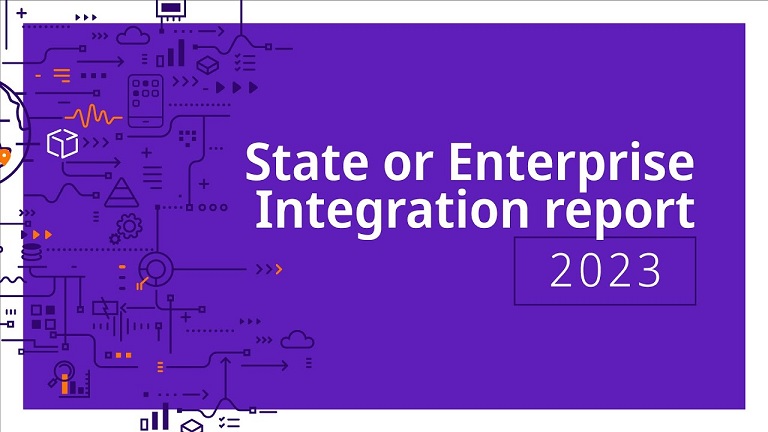Chainguard announced Chainguard Libraries, a catalog of guarded language libraries for Java built securely from source on SLSA L2 infrastructure.
An ever-widening gap exists between those organizations already leveraging iPaaS and those that are lagging due to a reliance on outdated integration technology, e.g., in-house, on-premises, and legacy systems, according to The Digibee 2023 State of Enterprise Integration Report. Unable to rapidly innovate, these organizations face increasing challenges including system downtime, expanding IT backlogs, and inadequate resourcing.

The report found that enterprise integration is a top priority in 2023, with most companies actively planning to adopt, supplement, or replace their integration technology.
In the 2022 report, a subset of respondents — those who had not yet implemented integration — were asked if they had a particular integration technology under consideration in their planning. 94% responded that they did not.
In contrast, the 2023 results reflect a market that is moving forward quickly in the adoption of enterprise integration, with 71% of respondents actively planning to implement the technology in 2023.
"Once an enterprise integration strategy is implemented, the company is able to achieve significant and meaningful economic efficiencies across the operation that benefit the business," stated Peter Kreslins, CTO and founder at Digibee. "For example, integrations that enable innovation now take weeks instead of months. Valuable projects languishing in the IT backlog can finally progress. And a good portion of the IT integration budget previously spent on maintenance and training — over 35%, is redirected to higher value work."
The report also found that disruptions to the business due to downtime during integration implementation have increased significantly.
In the 2022 survey, 57% of enterprises reported significant, impactful and more than expected downtime. In 2023 this increased to 79%.
While many enterprises are rapidly advancing on the execution of their integration strategies, organizations hampered by technology that isn't cloud-native lack the agility to respond quickly. It is anticipated that downtime will continue to increase year over year within a shrinking pool of enterprises that must deal with these internal roadblocks.
"Downtime, whether unexpected or planned, continues to cost the enterprise," stated Matt Durham, Market Strategist, Digibee. "Most organizations — especially those without an integration strategy — are already overextended in terms of resources and time. Disruptions to the business only exacerbate this imbalance, cutting into profitability and negatively impacting the customer experience."
Methodology: Digibee's research was developed in partnership with research firm CensusWide and is based on a survey of more than 1,000 U.S.- and Canada-based CIOs, CTOs, developers, and enterprise architects. The fieldwork was carried out between February 7, 2023 and February 20, 2023.
Industry News
Cloudelligent attained Amazon Web Services (AWS) DevOps Competency status.
Platform9 formally launched the Platform9 Partner Program.
Cosmonic announced the launch of Cosmonic Control, a control plane for managing distributed applications across any cloud, any Kubernetes, any edge, or on premise and self-hosted deployment.
Oracle announced the general availability of Oracle Exadata Database Service on Exascale Infrastructure on Oracle Database@Azure(link sends e-mail).
Perforce Software announced its acquisition of Snowtrack.
Mirantis and Gcore announced an agreement to facilitate the deployment of artificial intelligence (AI) workloads.
Amplitude announced the rollout of Session Replay Everywhere.
Oracle announced the availability of Java 24, the latest version of the programming language and development platform. Java 24 (Oracle JDK 24) delivers thousands of improvements to help developers maximize productivity and drive innovation. In addition, enhancements to the platform's performance, stability, and security help organizations accelerate their business growth ...
Tigera announced an integration with Mirantis, creators of k0rdent, a new multi-cluster Kubernetes management solution.
SAP announced “Joule for Developer” – new Joule AI co-pilot capabilities embedded directly within SAP Build.
SUSE® announced several new enhancements to its core suite of Linux solutions.
Progress is offering over 50 enterprise-grade UI components from Progress® KendoReact™, a React UI library for business application development, for free.
Opsera announced a new Leadership Dashboard capability within Opsera Unified Insights.
Cycloid announced the introduction of Components, a new management layer enabling a modular, structured approach to managing cloud resources within the Cycloid engineering platform.





